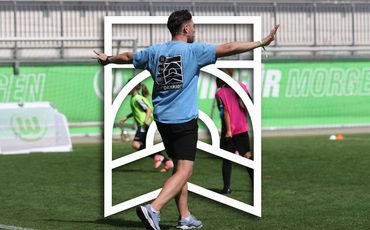Teaching Games for Understanding: Ideas for Coaching in Youth Sport
In his engaging presentation, Dr. David Piggott—Reader in Sport Coaching at Leeds Beckett University—explores the transformative potential of the Teaching Games for Understanding (TGfU) model in youth sport. Speaking as part of the ICOACHKIDS initiative, Piggott challenges traditional, technique-heavy coaching methods and advocates for a more holistic, game-based approach that prioritizes thinking, decision-making, and enjoyment.
At the heart of TGfU is a simple but powerful idea: teach the game through the game. Rather than isolating technical skills in drills, TGfU places children in modified game scenarios that reflect the real demands of sport. This allows them to develop tactical awareness, problem-solving skills, and technical execution in context.
Piggott explains that TGfU is grounded in constructivist learning theory, which emphasizes that children learn best when they are actively involved in making sense of their experiences. In practice, this means coaches act more as facilitators than instructors—posing questions, setting challenges, and encouraging players to reflect on their decisions.
One of the key benefits of TGfU is its ability to engage all learners, regardless of ability. By focusing on understanding and decision-making, rather than just physical execution, TGfU creates inclusive environments where every child can contribute and improve. It also fosters a deeper connection to the game, as players begin to understand not just how to perform a skill, but why and when to use it.
Piggott outlines a typical TGfU session structure, which begins with a modified game, followed by guided questioning and reflection, and then a return to the game with new insights. This cyclical process helps players internalize learning and apply it in real time. Importantly, it also keeps sessions fun and dynamic—key ingredients for long-term participation.
He also addresses common misconceptions about TGfU, such as the idea that it lacks structure or that it’s only suitable for older or more advanced players. On the contrary, Piggott argues that TGfU can be adapted for all ages and stages, and that it actually requires careful planning and thoughtful delivery to be effective.
The presentation concludes with a call to action for coaches to embrace TGfU as a way to develop smarter, more adaptable athletes. By shifting the focus from repetition to reasoning, and from instruction to interaction, TGfU aligns perfectly with the goals of modern youth sport: to develop not just skilled players, but confident, creative, and thoughtful individuals.
You can watch the full presentation below
Comments
Related Pages


